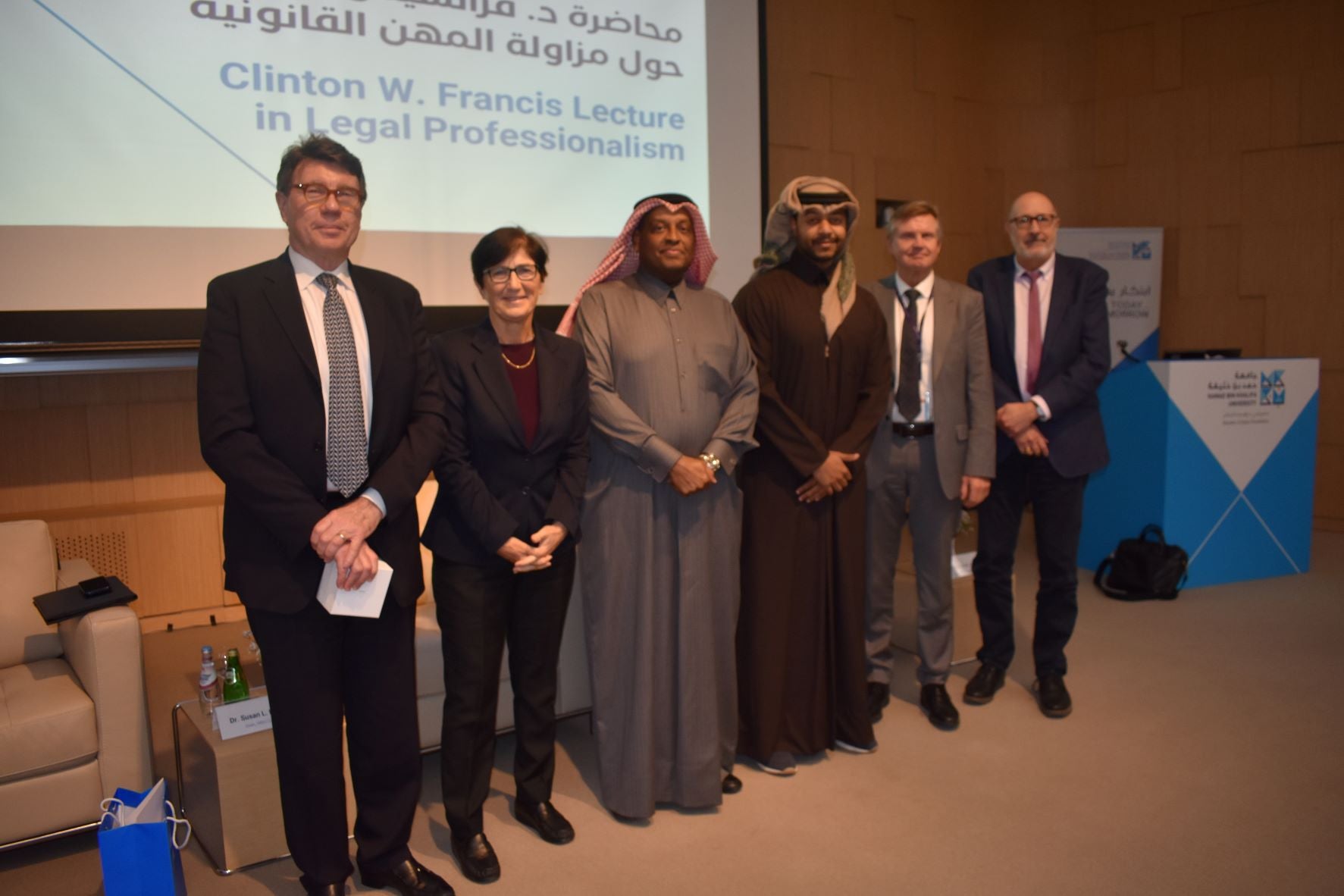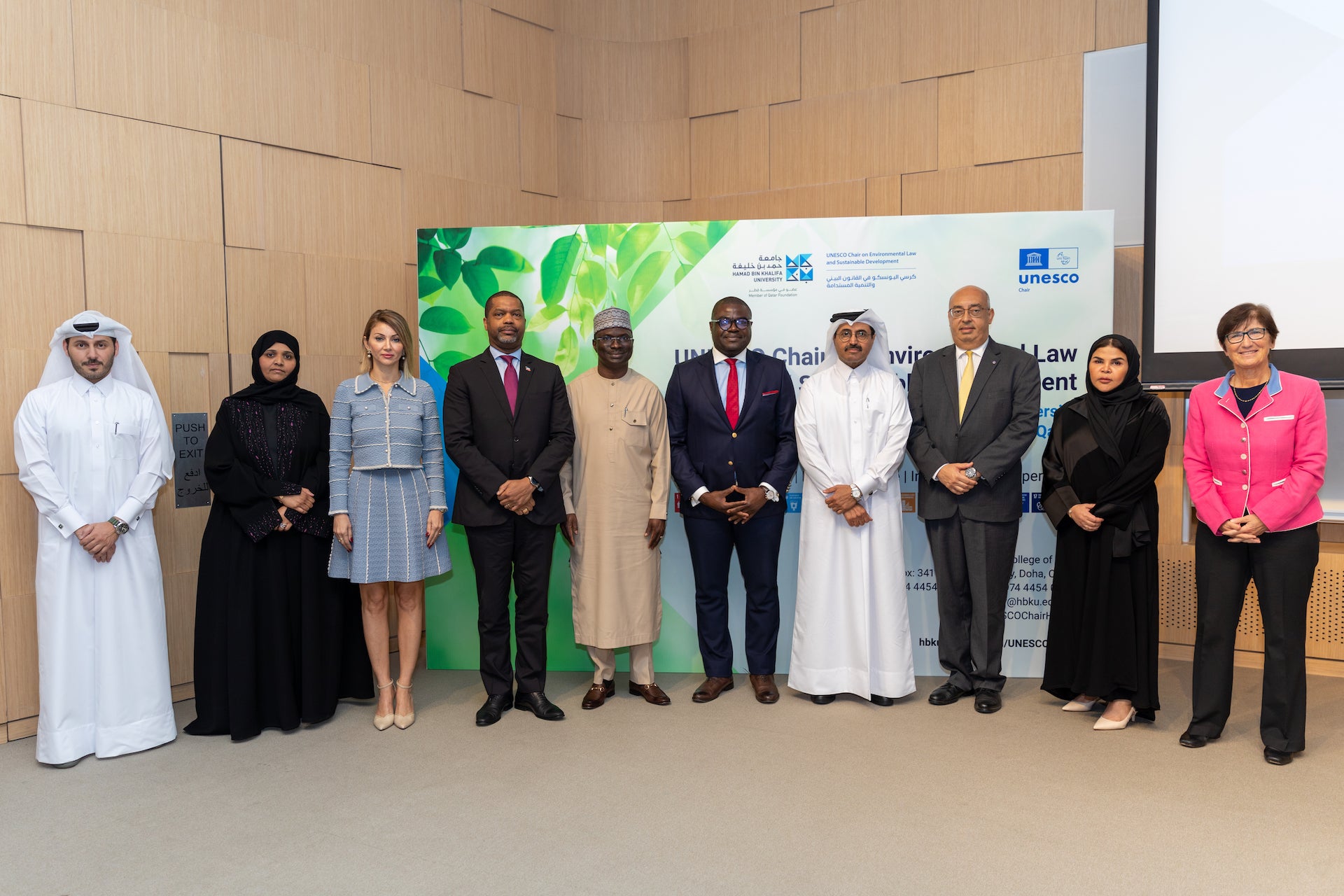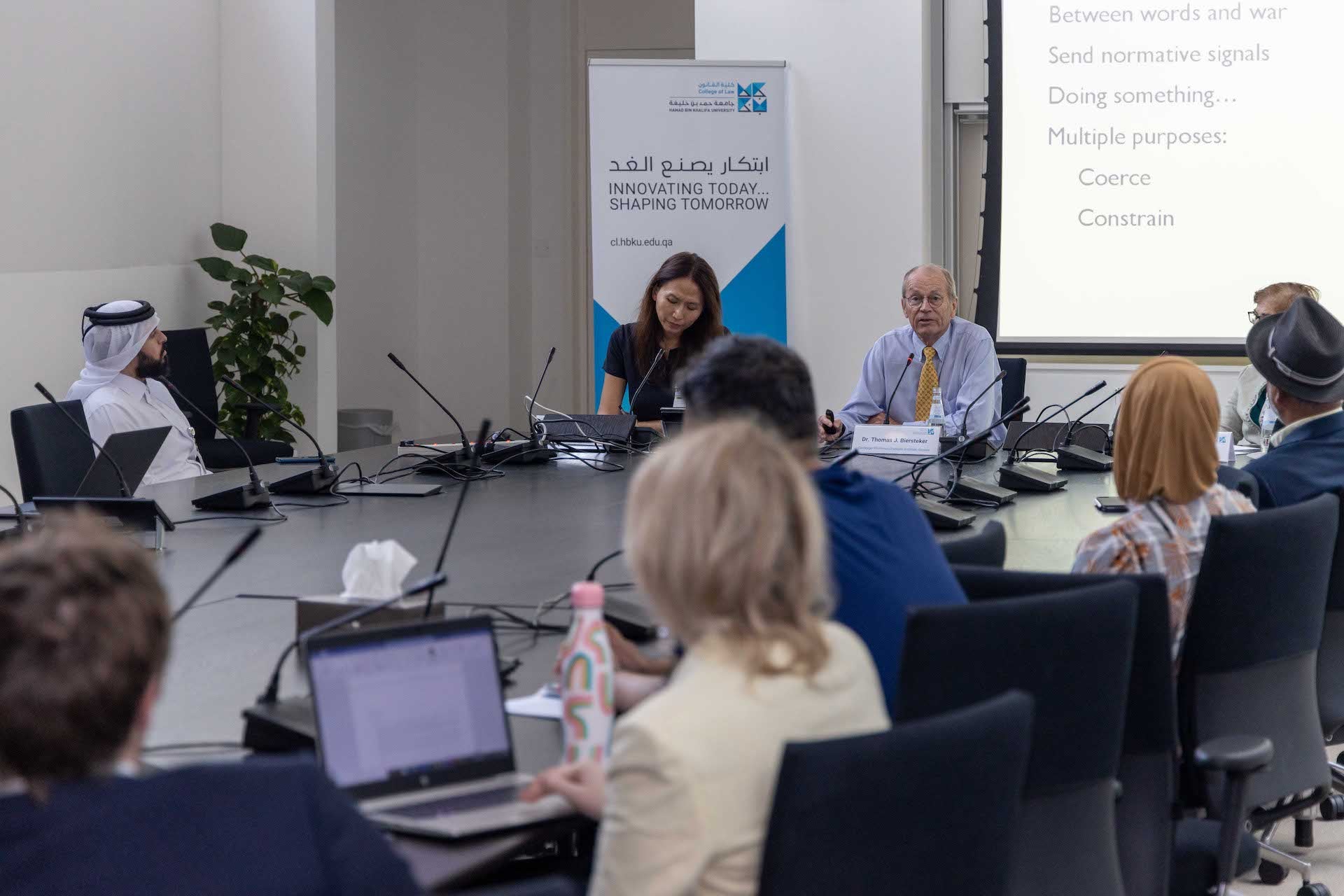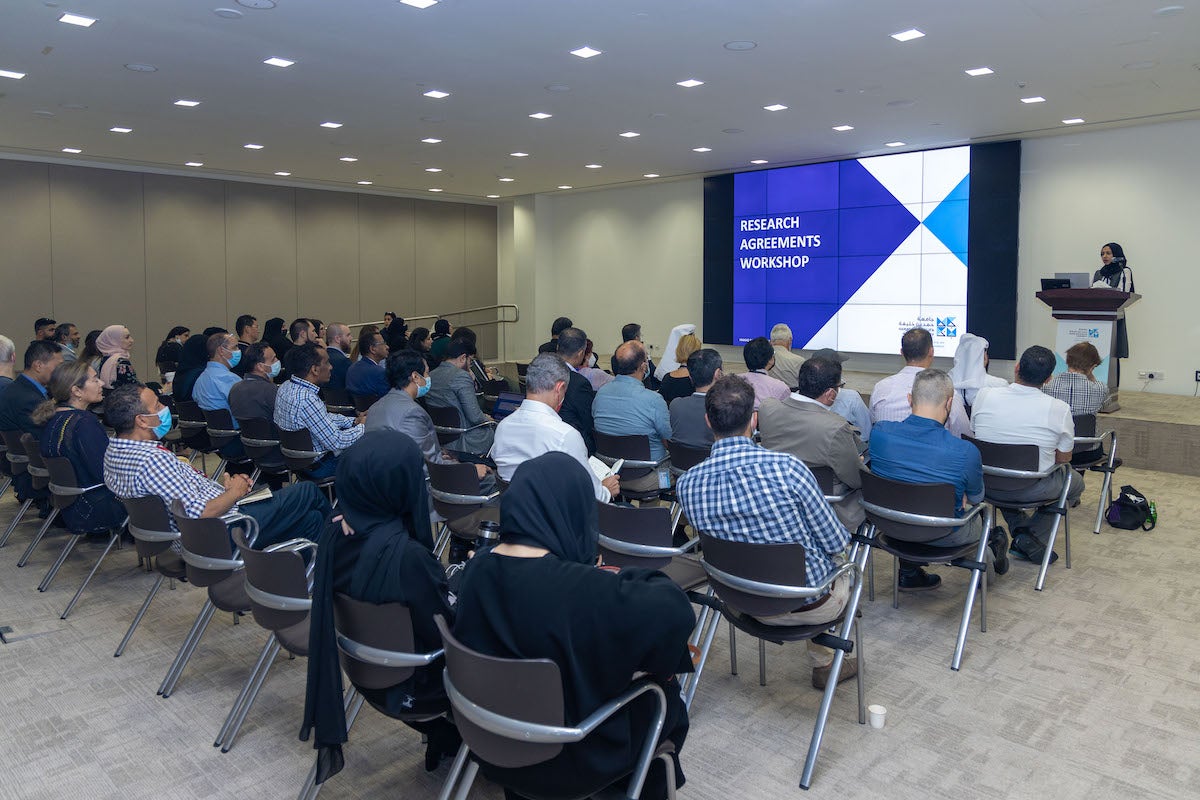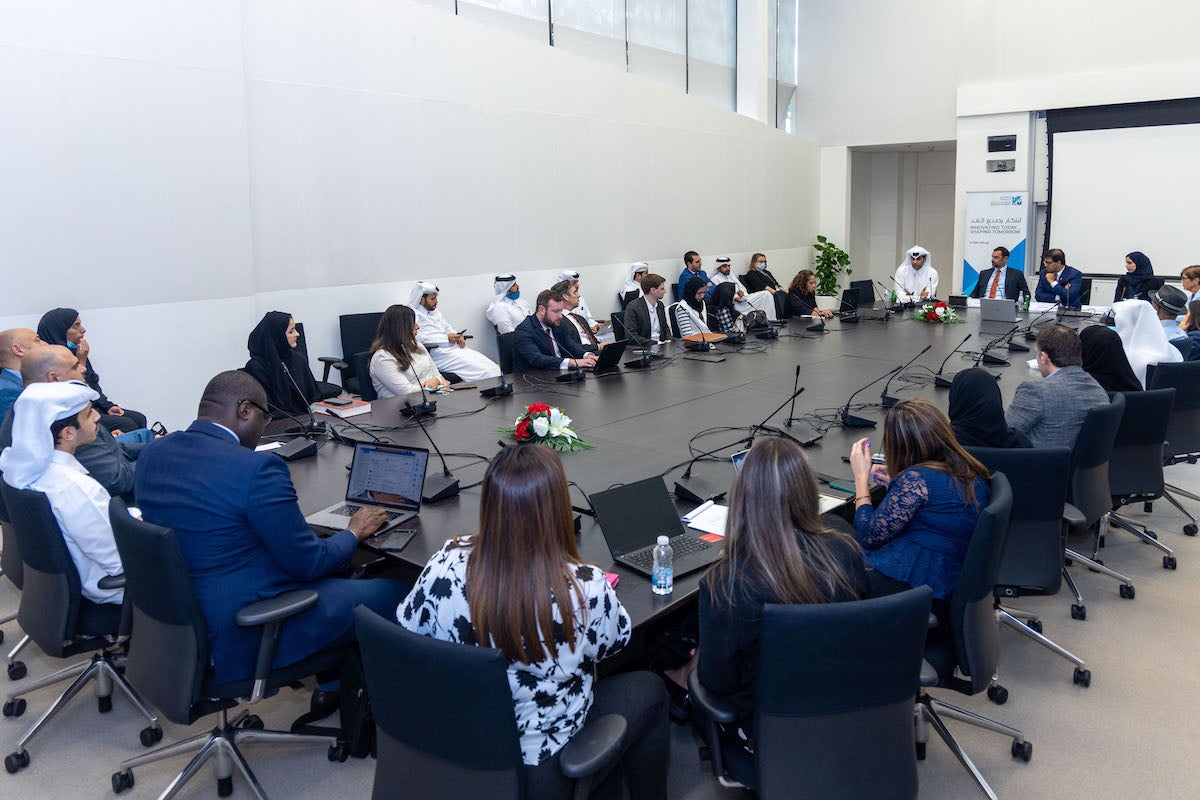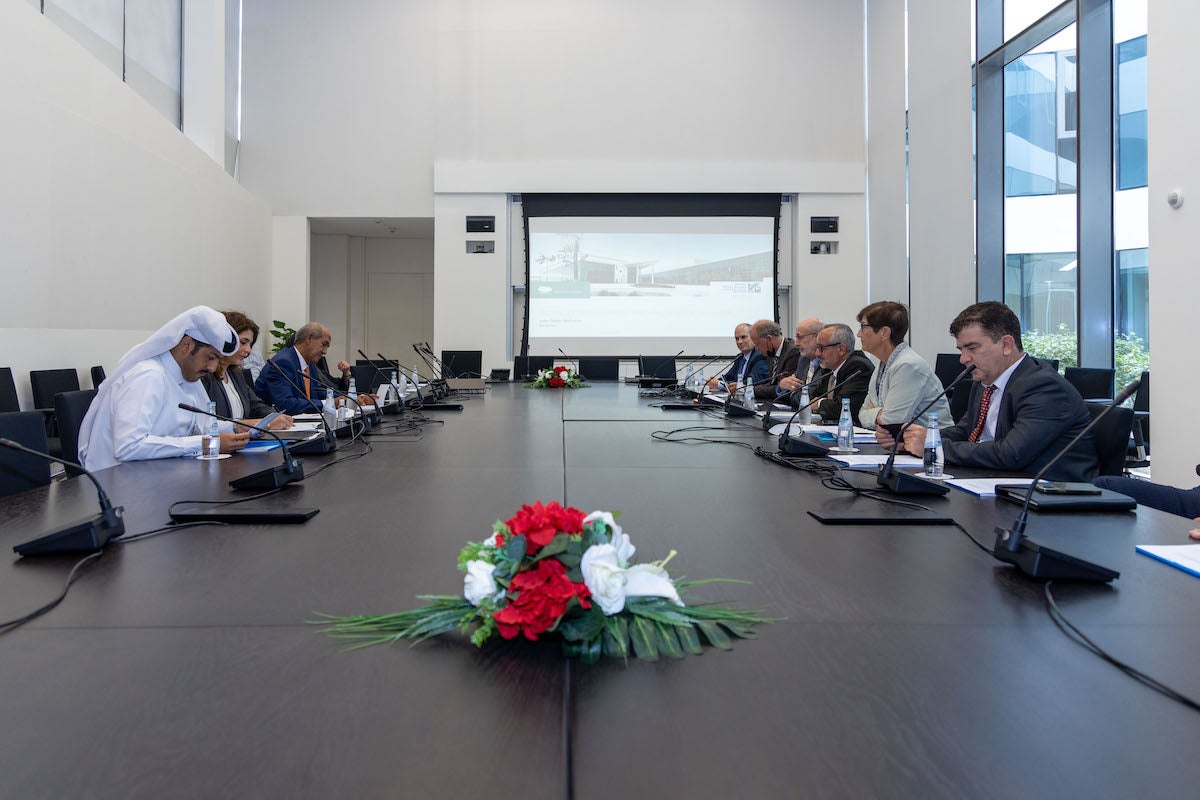HBKU’s legal and policy experts weigh in on aspects of the conflict

Experts from Hamad Bin Khalifa University (HBKU)’s College of Law and College of Public Policy (CPP) convened a roundtable on March 15 to examine the international legal and policy implications of the Russia-Ukraine conflict.
Susan L. Karamanian, Dean of the College of Law, and Dr. Leslie A. Pal, Founding Dean of CPP, moderated a discussion among faculty that considered the role of international law and geopolitical factors, including multilateralism, energy security, and foreign investment and international trade .
Dr. Ilias Bantekas, Professor at the College of Law, examined the legality of the use of force and remedies for a violation of the United Nations (UN) Charter, as well as the legal status of rebel-held territories.
On the matter of accountability for war time actions, Dr. Ka Lok Yip, Assistant Professor at the College of Law, examined the operating principles of the International Criminal Court (ICC). Her briefing touched on avenues to establish ICC jurisdiction and the possible crimes that the ICC could examine.
Based on his experience in senior positions in the UN, Dr. Andreas Rechkemmer, Professor at CPP, reflected on the impact of the conflict on the organization and current multilateral efforts, such as those around climate change.
Dr. Damilola Olawuyi, Associate Professor and Associate Dean for Research at the College of Law, discussed how the conflict gave energy markets the chance to recalibrate their relationships with Russia as a supplier. He referred to how Qatar demonstrated the importance of reliability as an energy supplier during the 2017-2021 blockade, with countries now exploring how its LNG resources can help meet energy supplies. He emphasized the need for countries to instill human rights into the oil and gas sector.
Dr. Kim Moloney, Assistant Professor at CPP, examined actions by the World Bank and the International Monetary Fund (IMF) to help address the immediate basic human and economic needs of Ukraine through measures such as emergency lending disbursements.
Dr. Georgios Dimitropoulos, Associate Professor and Associate Dean for Academic Affairs at the College of Law, presented an overview of trade issues, paying specific attention to the move of various states to seek withdrawal of Russia’s ‘most favored nation’ status, and the implication of this move along with sanctions in light of the trading regime under the World Trade Organization (WTO). He looked closely at the precedent for invoking measures essential for protecting security interests under Article XXI of the General Agreement on Tariffs and Trade (GATT).
Commenting after the event, the College of Law’s Dean Karamanian said: “The roundtable put the conflict in a legal context yet it did more by examining how the conflict could decisively reshape global governance and the post-Cold War international legal order. I thank my colleagues from the College of Law for providing us with their learned insights and the College of Public Policy for bringing its global governance expertise to the discussion.”
Adding to that, Dr. Pal, the Dean of CPP, said: “The sheer magnitude and aggression of the conflict presents challenges for global governance and multilateral cooperation as we know it. As our academic and wider community seek to better understand this conflict, HBKU colleges are well placed to offer cross-disciplinary analysis of the critical lessons that can help shape understanding.”
The roundtable highlighted HBKU’s commitment to hosting innovative lectures, seminars, conferences that elicit thought-provoking debate and promote innovative solutions. To learn more about the College of Law, its activities, and events, visit cl.hbku.edu.qa. To learn more about the College of Public Policy, its activities, and events, visit cpp.hbku.edu.qa.
Related News
